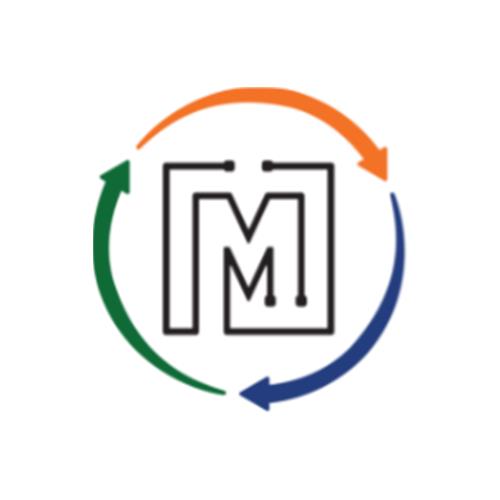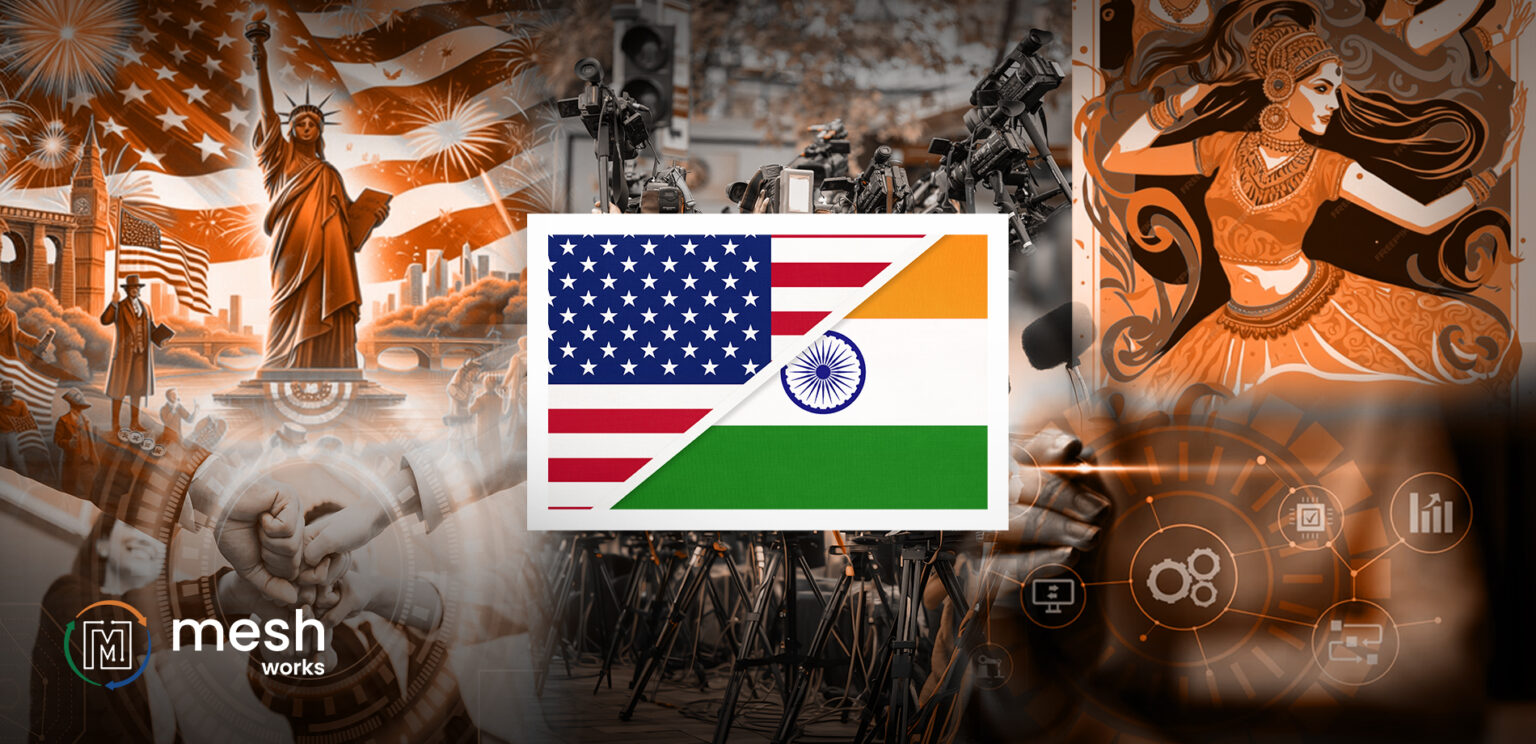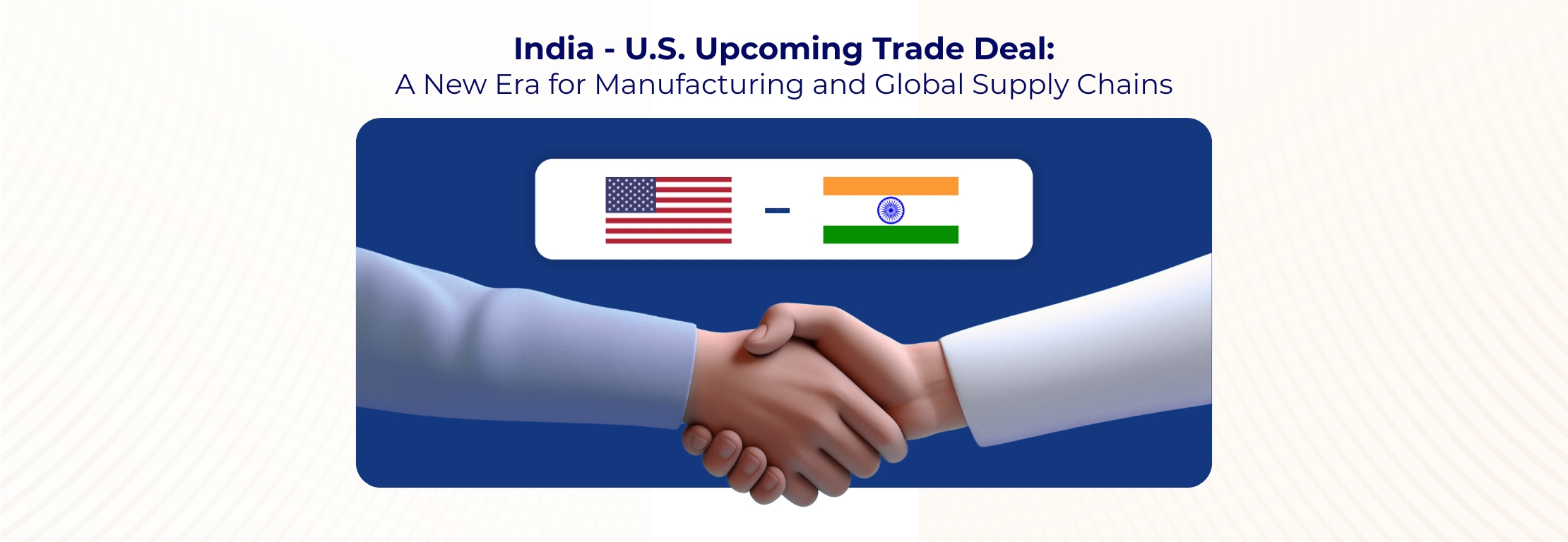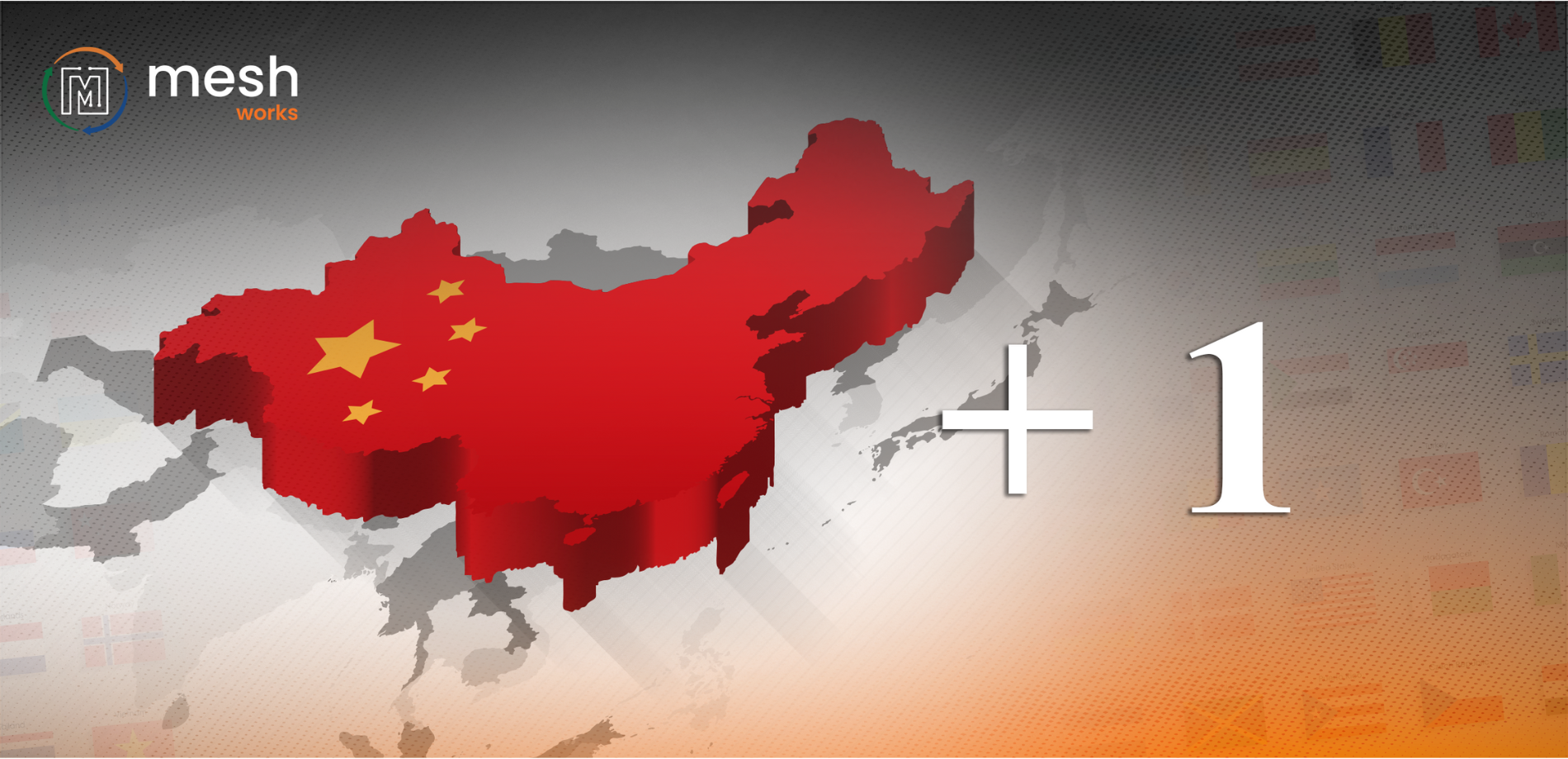MEDIA, CULTURE, AND INNOVATION: How MESH Works Played a Role in an India-America Tech Collaboration
Executive Summary
In many ways, technology has brought us closer together. Through the development of social media and the internet, we can communicate more seamlessly than any generation before us. However, creating and growing a global supply chain company in a foreign country can be difficult.
This piece explores how MESH Works went from a team of three individuals in India to a team of over twenty in just six months. A particular employee, Bill Henningsen, was part of a team that spearheaded this development. This case study explores the difficulties of building a global team through technological communication, provides a solution to mitigate these difficulties, and concludes by discussing a potential implementation process other companies could follow.
Background
The Task
As previously mentioned, Bill was a part of the team in charge of building a product IT development team based out of India while he worked and lived in America. Bill overcame various challenges from over 8,400 miles away to build the team. Two of these challenges included the lack of media richness that computer-mediated communication offered and learning different cultural norms associated with India. The subsequent sections explore these two challenges in greater depth.
Media Richness
Sometimes, it can be hard to communicate via computer-mediated technology due to a lack of media richness. Media richness is a term used to describe the ability a communication source has to provide immediate feedback. This can include verbal, nonverbal, symbols, and more (Sedrine et al., 2020).
For example, face-to-face communication is the richest form because one can receive feedback in response to a message sent almost immediately through verbal and nonverbal communication from the receiver.
In contrast, an email would be an example of a medium that has low media richness, as you cannot discern certain messages through variables such as tone, facial expressions, or nonverbals.
Therefore, one could conclude that not only communicating with a team overseas but also building one could be a challenge solely because the level of media richness is low. However, this is not the only barrier that Bill had to overcome.
Cultural Differences
Cultural norms vary from country to country, and our beliefs can play a major role in impacting our perceptions of events. For example, Hofestede (1980) is recognized as identifying the difference between individualistic versus collectivistic cultures within his academic writings. The main difference between individualistic and collectivistic cultures is that individualistic cultures (e.g., America) value autonomy more than collectivistic cultures (e.g., China).
These cultural differences don’t just lie within our perceptions of ourselves but even within the social norms we have when interacting with others, especially in how we do business. Sweta (2020) explains that personal relationships and paternalism are key values that traditional Indians care about. Thus, this indicates that the Indian culture cares deeply about its work relationships and organizations.
In addition, Bill explained that education is handled very differently in India, and he was not knowledgeable of the reputable colleges and universities referenced on the resumes he was reviewing. This is just another small example of the many cultural differences that caused Bill to spend numerous hours building this team, but how was he able to do it?
Proposed Solution
Through my conversation with Bill, it became apparent that to build a team from a different country, it is important to be patient, open-minded, and self-aware.
Patience:
As previously mentioned, Bill had to be very patient when communicating with a team in a different country. In fact, during a recent interview, Bill explained that communication breakdowns happened daily…sometimes hourly—on certain projects. This is why patience is crucial when managing and building a team, as it is easy to get frustrated with the lack of communication. Yet, it is not beneficial to anyone or the company.
Open-mindedness:
Bill came into this role at MESH Works with an open mind. He knew he was entering a start-up company, which meant he would be required to manage wearing many hats. So, when he was tasked with building a team in India, he was open-minded to the idea of taking on that challenge and learning about a different culture.
In fact, Bill continued developing this team by visiting India for two weeks in 2023. His open-mindedness to taking on this challenge assisted the company in building the MESH team.
Self-awareness:
Patience and open-mindedness are qualities that derive from an individual who has a lot of experience in the field but who is also self-aware. An individual is considered to have high self-awareness when they can adequately view themselves in relation to others through reflection and introspection.
Throughout the entirety of building the MESH Works team, Bill had to reflect on his verbiage, his cultural norms, and how his life experiences impacted the way he viewed the world. All these variables assisted Bill in communicating in an effective and self-aware manner.
Conclusion
According to Talbi et al. (2024), “Efficient communication among organizations is indispensable for building robust relationships and achieving a sustainable competitive advantage (p.17). MESH Works agrees with this statement. In fact, it is one of the six core values that make up the foundation of the company.
Communication is important in any organization but even more crucial for start-up companies. When you work for a start-up like Bill, you wear many different hats. This piece highlighted how Bill used his communication skills to demonstrate patience, open-mindedness, and empathy when building a product IT development team in India during his first six months at the company. Your company can do the same by implementing the following strategies/protocols.
We are positive at this point you are probably wondering how to get Bill on your team. Unfortunately, MESH Works will be keeping him for as long as we can! However, here are some characteristics and attributes you could look for in your current and future employees:
Empathy:
This refers to the ability one has to perspective take of themselves and of others. The saying, “put yourself in their shoes” is a simple way of envisioning what it means to be empathetic.
Empathy requires self-awareness, open-mindedness, and patience, all of which Bill demonstrated as a solution to our problem of building a team worldwide. Therefore, we also recommend that you choose leaders and team members who are empathetic. However, they mustn’t be overly empathetic as they are more prone to burnout than moderately empathetic individuals.
Communication:
Find employees are competent in their written and oral communication skills. Intercultural communication is a complex topic that has is considered its own category within the field of communication.
Hire or train individuals who have intercultural communication competence. This will be beneficial for you and your company as you begin to grow as a start-up.
Finally, the third component of implementing this ability to manage teams in various locations requires trust. Trust not only within the team member that you hire to lead this initiative, but throughout your relationships within the entire start-up.
Start-ups are often comprised of small teams and individuals within those teams are often required to accomplish many tasks that are outside of their repertoire. Hence, it is imperative also to be an empathetic, communicative, and trusting leader in the tech/supply chain world. When you feel you are struggling as a leader in these three areas, we call you to think back to Bill’s story as a source of motivation and accountability.
Learn more about MESH Works | Download the PDF of this Case Study





